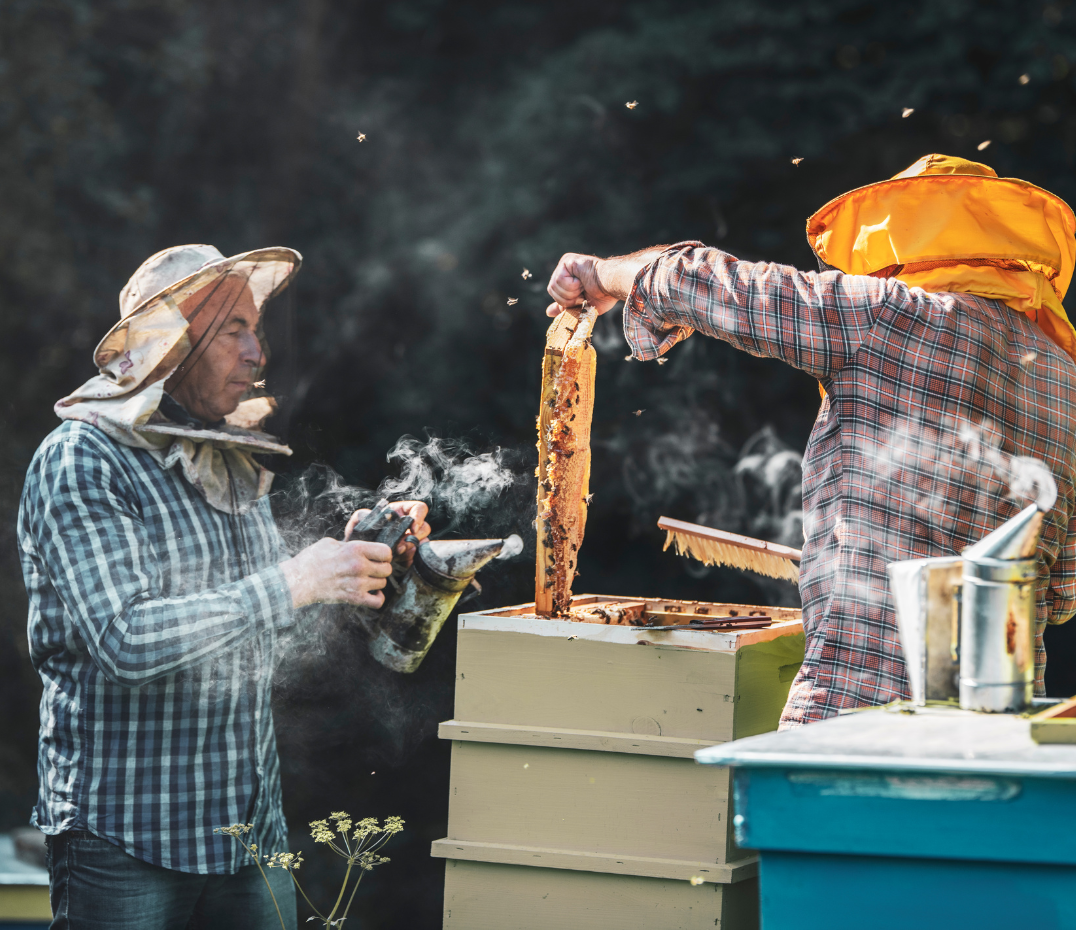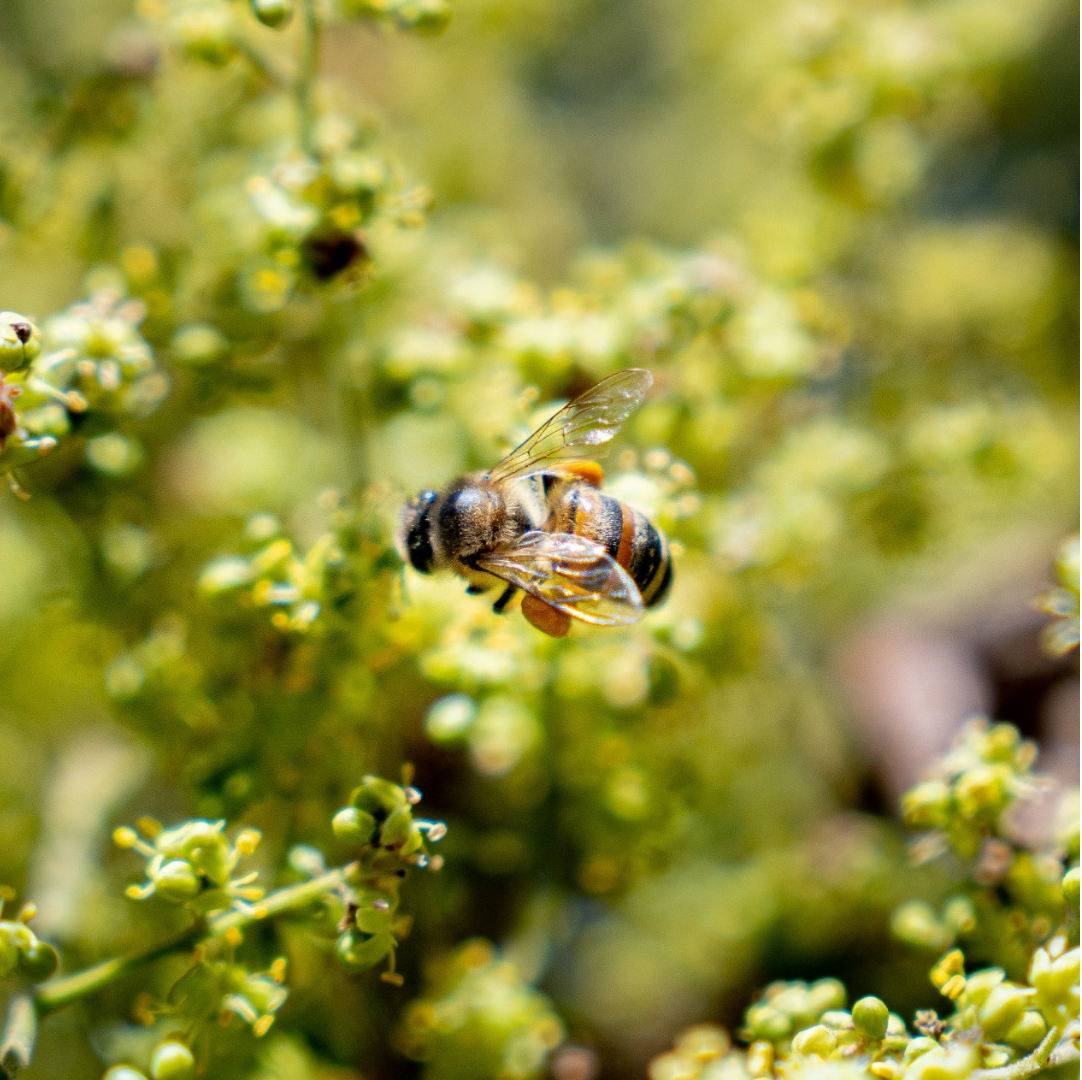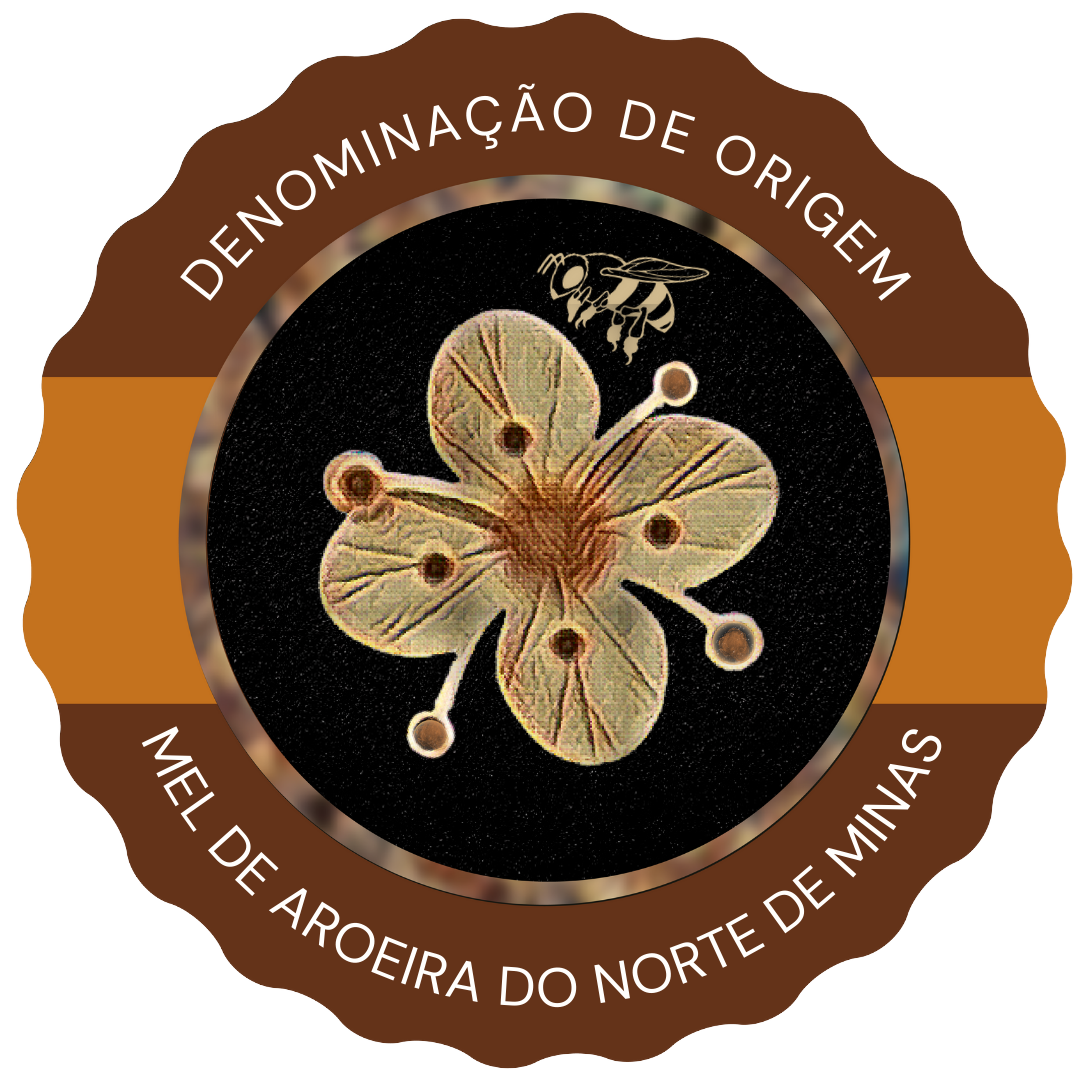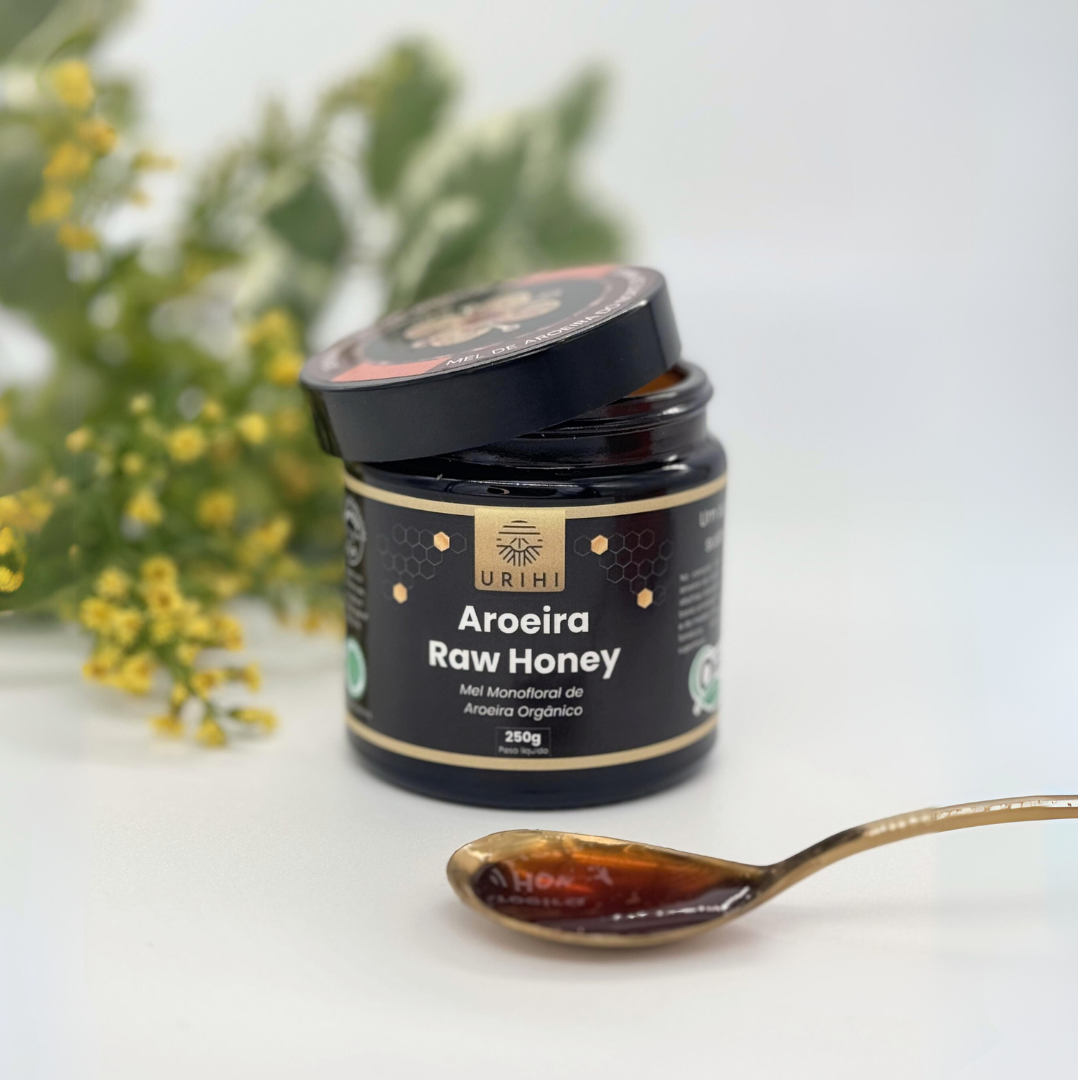
Urihi seeks the power of nature in traditional knowledge
Urihi values traditional knowledge, exploring the power of nature to develop its products. Inspired by ancestral practices, such as the use of Aroeira-do-Sertão, the company combines ancient wisdom with modern technology. This respect for traditions strengthens the quality of products and ties with communities, promoting sustainability and environmental conservation.

The benefits of mastic honey are discovered
Aroeira-do-Sertão has always been valued in the region for its exceptional anti-inflammatory and healing properties, in addition to being used in the treatment of gastrointestinal and gynecological conditions. However, its honey was little valued; Due to its dark color, it was considered inferior until researchers recently discovered the functional aspects of this honey. Aroeira honey has a high level of phenolic compounds, being rich in antioxidant and antimicrobial properties.

The exclusivity of Aroeira Honey is recognized
In 2022, INPI recognized the Denomination of Origin (DO) for aroeira honey produced in just 64 municipalities in the north of Minas Gerais. The designation of origin recognizes the unique and exceptional quality of our honey, validating its prestige and authenticity.

Not all Aroeira honey is the same, ours is special
The quality of aroeira honey produced in the region's 64 municipalities is defined by the combination of climate and soil as well as the practices of beekeepers. Urihi selects the best aroeira honey available, relying on strict quality control, both in production and in the traceability and profile of the honey. We guarantee a minimum of 150 mg/100g of phenolic compounds, ensuring that our customers receive superior quality Aroeira honey.

Protecting your health and preserving nature
During the dry season, when other trees do not bloom, the aroeira do sertão blooms quickly, providing refuge and food for bees. This process results in a rare monofloral honey, with more than 90% of the pollen originating from the mastic tree itself. By protecting the bees that produce this special honey, we also protect nature. Many rural producers are replacing livestock farming with honey production, restoring degraded areas and helping to preserve this endangered tree.

